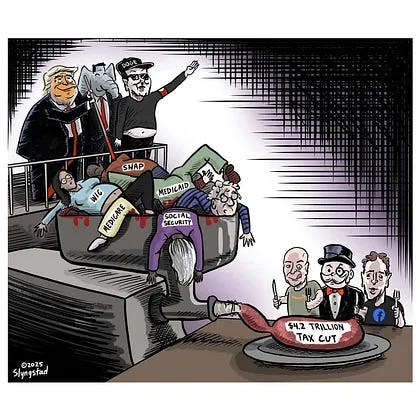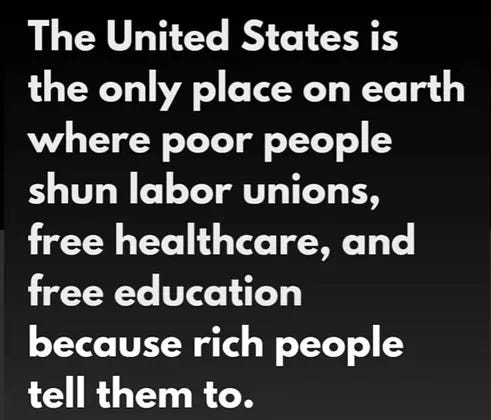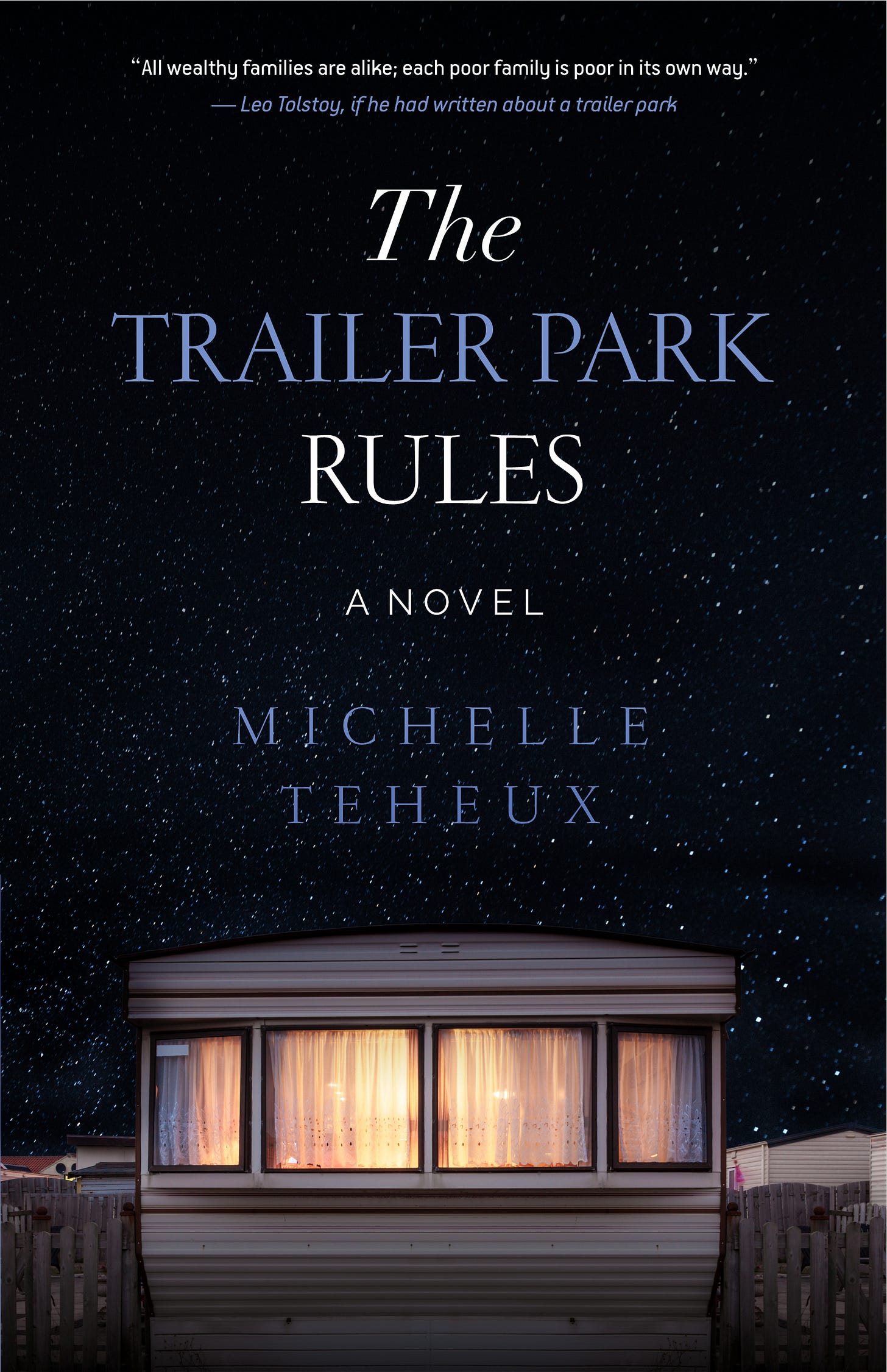
It was all over social media: Don’t buy anything on Feb. 28! Did it have an effect? Not so much.
I didn’t spend a penny on that day, but that doesn’t mean I spent any less than usual. I reminded my husband to fill up the gas tank the day before, and I bought the week’s groceries on Thursday instead of my usual Friday.
We burned the same amount of gas and purchased and ate the same amount of food as ever. For a boycott to really work, you have to do more than shift your purchases to the next day. You have to truly do without some things.
Was it easy for the Black people who participated in the Montgomery Bus Boycott for 381 days? I am sure it cost them some real pain to avoid the bus. Participants had to organize carpools and such. In the end, though, they won.
It will take more than staying off Amazon one day to make changes, and any changes we make will cause some degree of pain or at least inconvenience to us, too. Here is where we find out just how much we care.
If you have some hot income inequality-related news you don’t see shared here, please add it in the comments or shoot me a message! I intend this round-up to be a one-stop shop for everyone who cares about this topic and a great place to discover new sources to follow. If you see a newsletter you like, don’t forget to subscribe to it today!
And now, here’s the roundup:
Is America Losing the Ability to Grow Its Own Food?
Matt Stoller, Big
Behind this mismatched incentive problem is an ideological framework that came from famed economist John Kenneth Galbraith’s 1958 book The Affluent Society. In that book, Galbraith explained the wonderful performance of the 1950s American economy as an engine that automatically spewed out jobs, wealth, machines, food, and innovation. Galbraith, and his allies in what was known as ‘the New Left,’ demanded more of the cut of this prosperity go to consumers and the environment, while the ‘New Right’ wanted more to go to the rich. But neither questioned the underlying premise that the economy just kind of worked, and the politics had little to say about it.
You Can Serve Dinner for a Dollar
Michelle Teheux, Untrickled
I just did the math for my Black Bean Loaf, one of many recipes I’ve devised over about 19 years of marriage to a really picky vegetarian, and the total cost of this dish is $2.97 for six servings!
The Opt-Out Economy: What Happens When 46% of Gen Z Women Stop Shopping
Libby Rodney and Abbey Lunney, The Next Big Think!
This isn't just selective shopping - it's calculated economic leverage. When 55% of Gen Z women and 50% of Gen Z men report completely shifting their spending patterns to align with their morals, they're exercising the most powerful tool they have in a capitalist system, but at a personal cost.
EoR No. 10: How are we doing birthdays in 2025?
Dana Miranda, Healthy Rich
Does a low unemployment rate really matter if nearly one-quarter of Americans are earning poverty wages or less?
GOP Blocks Bill to Give Grandma $2,400 More A Year
Robyn Pennacchia, Wonkette
Sanders noted that 25 percent of seniors are actually living on $15,000 a year. I will also note that the average 70-year-old gets $2,081.42 a month in Social Security benefits and 40 percent of seniors are living on Social Security alone.
The Middle Class Is A Myth
Jared A. Brock, Surviving Tomorrow
Fifty years ago, America had a thriving (albeit largely Caucasian) middle class, where families owned homes and cars on a single income, and enjoyed fat pensions, cheap vacations, buy-it-for-life-quality goods, and affordable education for their kids.
That life was murdered by the rich.
It was sacrificed on the altar of greed to make space for the new billionaire class.
A Roundup of Bad Child Care Takes
Kathryn Anne Edwards, Kedits
The gross economic inequality between the rich and the rest of us in the United States is already imprinted on children by the time they show up to kindergarten. This is called the “school readiness gap” and it's exactly as it sounds, the difference in readiness for kindergarten between children who come from different income households. The cause of this gap is not a mystery: it’s predicted by the same inequality children experience in the quality of early childhood care. And the consequences of this gap aren’t small, starting school behind can put children at a lifetime disadvantage. Kids don’t have an equal start, money guarantees that and always will. Comprehensive early childhood care is a thumb on the scale to fight that influence.
Brain Food
Brian Klaas, The Garden of Forking Paths
Intergenerational poverty—in which those who are born poor stay poor throughout their lives—is an obvious blight on society. Its persistence also flies in the face of many meritocratic myths about poverty being purely a reflection of limited talents and poor choices rather than structural and social factors.
But how persistent is intergenerational poverty? And which countries are best—and worst—at tackling it?
Recently published research in Nature set out to answer that exact question, with a comparison between the United States, the UK, Australia, Germany, and Denmark. This design allowed the researchers to examine differential rates of intergenerational poverty among five rich democracies that are ostensibly peer nations.
The findings are brutal reading for the United States. As the researchers explain:
“We found that the United States has a much stronger intergenerational poverty than the four other high-income countries examined. Spending all of one’s childhood in poverty in the United States is associated with a 42 percentage point increase in the mean poverty rate during early adulthood. This is more than four times stronger than in Denmark and more than twice as strong as in Australia or the United Kingdom.”
Crucially, though, through a series of clever research methods, they were able to identify the key drivers of the variation between these countries. And, as they point out, the biggest factor that makes the United States an outlier is tied to government policy around taxes and the social safety net. Using sophisticated modeling, they were able to demonstrate that “if the United States were to adopt the tax and transfer insurance effects of its peer countries, its intergenerational poverty persistence could decrease by more than one-third.”
The Business Community Is Extraordinarily Stupid
Hamilton Nolan, How Things Work
Why can’t you all take advantage of your position on the winning side of the class war to stop these things which will demonstrably harm your own interests? Ah, that’s right—you wanted the inequality, and you wanted the money to be able to control politics, but you didn’t consider that that process would create one guy who is richer than all of you put together, and who outweighs you all. Sucks. Who could have foreseen this logical endpoint of the very things that you yourself pursued?
Should You Marry a Rich Person?
People tend to think it’s better to marry someone with a similar background, while also believing it’s a great coup to marry up.
The HillBilly Machiavellis
Ben Cohen, The Banter
On the surface, the apparatchiks around Donald Trump could be described as Mayberry Machiavellians. Many are from small towns and wax lyrical about small town values — or the “real America”. They are also ruthless and display real political cunning. But there is something very different about this new breed of Republican and the politics they espouse.
Vice President JD Vance is perhaps the best example of the new Mayberry Machiavelli.
Despite his humble roots in Middletown, Ohio, Vance’s political career is a creation of billionaire tech titans in Silicon Valley, namely Peter Thiel, David Sacks, and Elon Musk. The tech titans saw in Vance a political star who would further their agenda while appealing to working class Americans.
The 100-Year-Old Lie That’s Still Controlling Your Life
Zia Kasey, The Zia Chronicles
There is a number—just one number—that governments, economists, and corporations obsess over. It determines policy, shapes elections, justifies abuse, and fuels our collective exhaustion. It is worshiped like a god, dictating which nations are “winning” and which are “failing.”
That number is Gross Domestic Product (GDP)—and it is, to put it bluntly, bullshit. …
It Erases the Contributions of BIPOC, Immigrants, and the Working Class—And Rewards Exploitation.
From Patrons to Plutocrats: Why Superyachts are the New Cathedrals
Brian Klaas, The Garden of Forking Paths
It was long expected that with great wealth came great responsibility. The super rich had duties to society, not out of the goodness of their hearts or through optional charity, but as a basic requirement.
Intolerable inequality was somewhat mitigated by the archetype of the public patron, the obligation of converting private wealth to shared civic investments. (These days, it’s too often the inverse, as Musk uses vast sums of taxpayer money to bolster his business empires, converting civic investments into private wealth).
Greedbane: Income Inequality Newsletter
Greedbane
Last week, we laid out why Regenerative Economic Zones (REZs) are the way out of corporate feudalism. If we don’t build an economy we own, we’ll be trapped in theirs—where we rent every aspect of life while billionaires turn survival into a subscription service.
This isn’t theoretical for me. I’ve spent my life watching how this system keeps people in place. I grew up in poverty. I worked in healthcare for years. I’ve seen what happens to people who get sick in a system where insurance companies, not doctors, decide who gets care.
And after all these years, I’ve realized something: we can’t wait for this system to change. We have to build something they don’t own.
Money date No. 19: Sisyphean
Dana Miranda, Healthy Rich
TAXES SHOULD BE HIGHER. Taxes should pay for stuff like printing a document, so I don’t have to. Putting a cost like that on individuals is ridiculous, and if you think you’re paying less to the government under this system, your equation is missing some vital variables.
The Labor Issue
Phoebe Assenza, Mess & Noise
Workers actually dropped the ball over the last decade-and-a-half, when business was more booming. Or rather, we fell for a con. Our original sin was failing to consider ourselves “labor” in the first place.
We were led to believe we’re ninjas or rockstars, high-performers, “very talented,” drivers — because we had college degrees and the natural energy of people in their 20s and 30s (plus Adderall prescriptions/Red Bull addictions). Therefore, we were better than the guy sitting next to us.
In pursuit of individual excellence, we relented our power as workers among workers and these tech CEOs got away with a lot.
About Michelle Teheux
I’m a writer in central Illinois. If you like my work, subscribe to me here or on Medium. My latest novel is The Trailer Park Rules. Tips accepted at Ko-fi.
All wealthy families are alike; each poor family is poor in its own way.
— Leo Tolstoy, if he had written about a trailer park
For residents of the Loire Mobile Home Park, surviving means understanding which rules to follow and which to break. Each has landed in the trailer park for wildly different reasons.
Jonesy is a failed journalist with one dream left. Angel is the kind of irresponsible single mother society just shakes its head about, and her daughter Maya is the kid everybody overlooks. Jimmy and Janiece Jackson wanted to be the first in their families to achieve the American dream, but all the positive attitude in the world can’t solve their predicament. Darren is a disabled man trying to enjoy his life despite a dark past. Kaitlin is a former stripper with a sugar daddy, while Shirley is an older lady who has come down in the world and lives in denial. Nancy runs the park like a tyrant but finds out when a larger corporation takes over that she’s not different from the residents.
When the new owners jack up the lot rent, the lives of everyone in the park shift dramatically and in some cases tragically.
Welcome to the Loire Mobile Home Park! Please observe all rules.

























Yes. I didn’t buy anything on the 28th, but like you that wasn’t really a change. We don’t buy much on most days. However I canceled my Prime membership last week, and that will have a bigger impact. We got into the habit of buying a lot of staples online during the pandemic, and now we aren’t going to do that anymore. But when you aren’t a big consumer, your boycott actions don’t make a big difference.
when living in a cappy system, boycotts mean everything. almost as much as voting. thanks for this queen